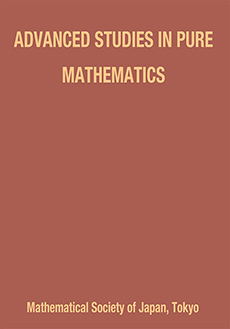Abstract
We consider the asymptotic behavior of solutions for the Schrödinger equation with a Dirac delta potential and a gauge invariant power nonlinearity:\[(\delta{\text -}\mathrm{NLS}) \qquad \qquad \qquad i\partial_tu + \frac{1}{2} \partial_x^2 u - q\delta u = \lambda |u|^{p-1}u, \quad t,x \in \mathbb{R}$,\]where $u = u(t, x)$ is a $\mathbb{C}$-valued unknown function of $(t, x)$, $q \in \mathbb{R}\backslash\{0\}$ and $\lambda \in \mathbb{C} \backslash \{0\}$ are constants, and $\delta = \delta (x)$ is the Dirac measure centered at the origin $x = 0$. Our aim in the present paper is to prove an asymptotics of the solution to ($\delta$-NLS) and $L_x^2$-norm of the solution tends to 0 as $t \rightarrow \pm \infty$, in the repulsive, dissipative and long-range case:\[q \gt 0,\ \Im \lambda \lt 0 \mbox{ and } p = 3 \mbox{ or } p \lt 3 \mbox{ (close to 3)},\]for an arbitrarily prescribed final data in a lower order weighted Sobolev space.
Our proof of this result is based on a factorization technique for the linear solution ($\lambda = 0$) (Proposition 3.2) and properties of the distorted Fourier transformation (Proposition 4.1).
Information
Digital Object Identifier: 10.2969/aspm/08110013


